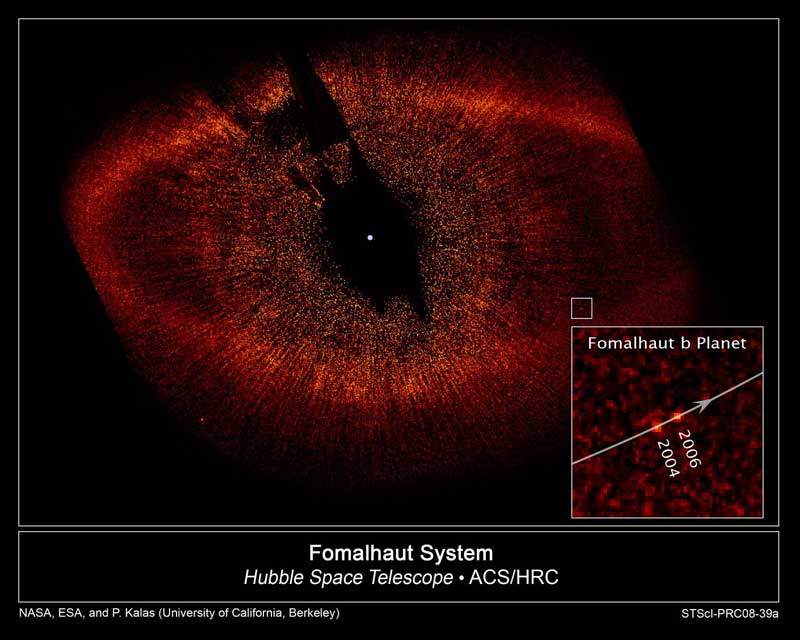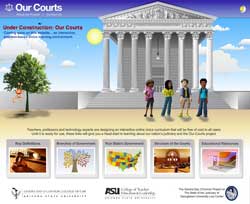mathdittos2.com
...dedicated to...hmmm, we're still figuring that one out... |
|
All Homework Done Matt Gunderson tells about the Zeros Aren't Permitted (ZAP) program at Fowler Middle School in A little 'ZAP' goes long way on homework. Students at Fowler who have not completed homework attend a special lunch and homework session, with an after school session also available for completing homework. NASA Endeavor Science Teaching Certificate Project NASA has announced the Endeavor Science Teaching Certificate Project. The Project will award more than 200 fellowships to educators during a five year period. Educators accepted will be exposed to current NASA science and engineering and supported in translating the information for use in classrooms via workshops, online and on-site graduate courses and NASA content and materials.
If it weren't cloudy out as I write this posting on a Sunday evening, I'd easily be able to spot the star, Fomalhaut, in the southern night sky. The Stellarium screenshot at right shows the star Fomalhaut with constellation lines for its constellation, Piscis Australis, as it would appear from my home. A Science@NASA posting on Friday reported, Hubble Directly Observes a Planet Orbiting Another Star.
Paleontology Portal for Students and Teachers The Paleontology Portal "invites students to discover prehistoric life in the U.S. by state and time period, see famous fossil localities and assemblages, and search fossil images and paleontology collections from participating museums." Field guides, maps, curricula, and K-12 resources are included. I ran across this site via a link from the US Department of Education's RSS feed. I'd recommend adding this feed to your RSS reader, as it often seems to list sites I've previously been unaware of. Also, the same info appears on the DOE's FREE ( Federal Resources for Educational Excellence) site and via its own RSS feed. Send Feedback to |
|
Lost in Space I'm sure everyone has had the experience of working somewhere, on a roof or up a ladder, and having dropped a needed tool. While annoying, for most of us, it just means getting off the roof or climbing down the ladder to retrieve the lost tool. For veteran spacewalker Heide Stefanyshyn-Piper, losing her grip on a tool bag while cleaning up a mess on a spacewalk outside the International Space Station, has made her (and the tool bag) the star of YouTube videos, TV newscasts, and Space.com articles (See: Spacewalkers Lose Tool Bag During Space Station Lube Job). Apparently no harm was done from the lost tools, which are floating away from the space station. Stefanyshyn-Piper and fellow spacewalker, Steve Bowen, were able to complete repairs to the bearings of a gear that turns the space station's starboard solar wings. As with all NASA flights, there lots of images teachers may use free of charge in their classrooms of the space station and the shuttle. Another Free Online Tool I've always liked using text-to-speech tools in the classroom. That may be due to Apple having incorporated text-to-speech into its operating system since the Classic OS days. When I have the time, I still use text-to-speech as one of my proofreading steps on columns and other important documents. It's surprising the errors you hear that you don't see and spellcheckers don't catch. "You" for "your" and overuse of phrases such as "of course" are a couple that a listen-through helps me catch. Several years ago my use of text-to-speech and a few other techniques led to a grant that allowed my school to buy a bunch of tech equipment and software to improve special needs kids' writing skills. Possibly our best investment was in Don Johnston's Co:Writer assistive software that uses text-to-speech to review written words, review sentences, and to pronounce predicted words for students. On Monday, Tom Rademaker of Oak Hill High School in Converse, Indiana, wrote to tell me of a free, online tool for creating sound files from many types of text documents. SpokenText.net will convert text entered manually and the following document types: Acrobat PDF (.pdf) It quickly converted a plain text file of the Educators' News About page to a 788K MP3 file. Unfortuantely, it didn't like the same information in a Word document from my Mac. On my Mac, Word is Word 2004, so it makes sense that it didn't work. When I transferred the same file to my PC and saved it with Word 2003, it created a sound file without a hitch. Tom wrote that he was using SpokenText sound files of a science text for his students to use. He also wisely passed it along to the special ed folks in his building for them to use with their students. Both Tom and I wondered what educational uses there might be for this new tool. It seems to have some real possiblities with its ability to export to mp3 and iPod formats. And the price is certainly right. SpokenText does offer SpokenTextPlus for $25 that has some more bells and whistles, but for most of us, the basic SpokenText might prove to be a real winner! A Different Perspective on Autism Dan Berrett has an extremely interesting article in the Pocono Record, Demonstration lets you get 'inside' autism and see what it's like. He tells of William Stillman's Demystifying Autism presentation that helps participants get a feeling for what people with autism may experience. Stillman, who has Asperger's Syndrome, "believes that people with autism understand far more than they let on," and "should be treated with the presumption that they have an intellect — even if its expression is subtle and easy to miss." He adds that autistics often miss the "subtleties of human communication," and tells "a story of a young boy with autism ordering a birthday cake. When the person working at the counter asked him what he wanted his cake to say, the boy laughed, explaining that cakes can't talk." Barrett notes that "Stillman's Reading First Report The final version of a congressionally mandated study on the Bush Administration's Reading First program was released yesterday. As with the preliminary findings released in May and reported here, the study "found that students in schools that use Reading First, a program at the core of the No Child Left Behind law, scored no better on comprehension tests than students in similar schools that do not get the funding."
Our Courts Program in Development
Medications in Question Judith Warner has a good article about the off-label use of a powerful new class of drugs with special needs kids in Tough Choices for Tough Children. Warner starts with concern about "Risperdal, a tranquilizing whopper of a drug with serious, sometimes deadly side effects...now being widely prescribed to children with attention deficit hyperactivity disorder." She notes that drug companies' aggressive efforts to promote off-label use of the new class of drugs has "resulted in a spate of lawsuits." But as she warms to the topic, she writes a gem for those of us charged with helping these kids in the classroom. "I think that what’s happening is that children with big problems are being given big, bad drugs because no one really knows what to do with them." Prom Dress Economy AP writer, Christine Armario, tells in A rite of passage, without the cost about the Becca's Closet program of recycling old prom dresses for the economically challenged. School Change eSchool News assistant editor, Meris Stansbury, tells about Tony Wagner's suggestions for school change in Seven skills students desperately need. Stansbuy quotes Wagner as saying that he hears two things repeated constantly by today's employers: "We need people who can ask good questions, and we need people who can engage others in thoughtful conversations." Wagner's plan involves the following:
Wagner, co-director of the Change Leadership Group at Harvard University's Graduate School of Education, also addresses the issue in his web posting, The 7 Disciplines For Strengthening Instruction. Stone Soup Of course, school change is hard to do when your resources are exhausted. Christine Philiput, a committee vice chairman at the Winchendon Public Schools (MA), decided to make Stone Soup in face of their students' unmet needs. She's asking the Winchendon community for renewed and increased volunteer efforts as they try to match volunteers to students. Worcester Telegram & Gazette writer Gail Stanton tells the story in Stone Soup lines up education needs, resources. I think a lot of other financially strapped schools around the country are also trying to make Stone Soup right now. Black/Pink Friday - Cyber Monday Ads I'm still collecting Black/Pink Friday and Cyber Monday sale links and will put them up on Educators' News sometime next week. In the past I've waited until Friday, but this year may go ahead and get them up early, as many vendors in these tough economic times are stretching their sales out over the whole week and into the next Monday.
Ads shown on this site do not represent an endorsement or warranty of any kind of products or companies shown. Ads shown on archive pages may not represent the ads displayed in the original posting on Educators' News. |
| Previous Week |
©2008 Steven L. Wood






